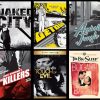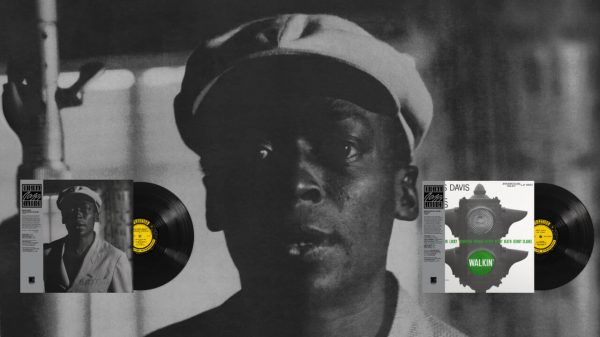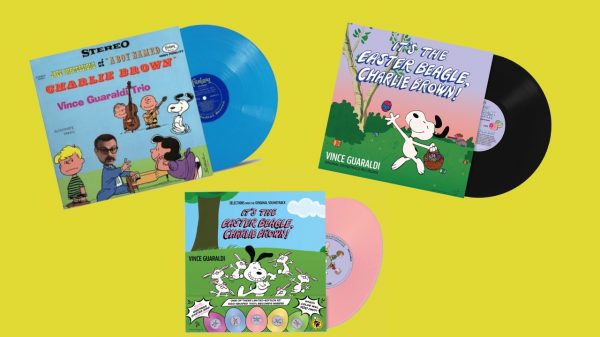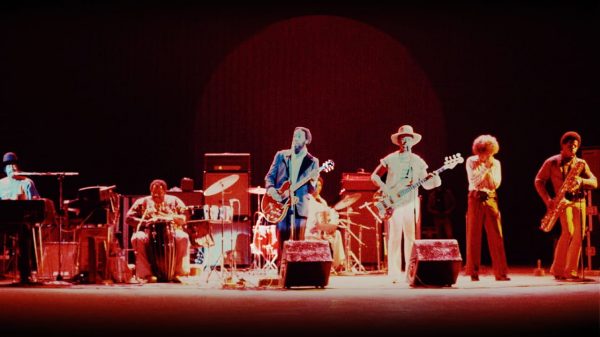With each passing month, record labels grow more attached to TikTok—but it now looks more like addiction. Some have reached the point where they won’t release an album until the music goes viral on TikTok.
Consider the strange case of Trevor Daniel, who had more than one billion streams for his breakout hit “Falling.” The song climbed the chart in more than 20 countries. But now his label requires TikTok success before releasing a new record.
“It’s just been pretty much impossible to put out music,” he recently told Rolling Stone.
That’s dumbfounding.
A 27-year-old with a billion streams can’t release new music? But he isn’t exaggerating. He keeps uploading snippets, waiting for one to go viral—but they don’t reach the threshold his label demands.
This is hardly an isolated case. The singer Halsey put up a TikTok last week complaining about her label’s obsession with TikTok. “I have a song I love I wanna release ASAP,” she told fans on the platform, “but my record label won’t let me. I’ve been in this industry for eight years and I’ve sold over 165 million records, and my record company is saying that I can’t release it unless they can fake a viral moment on TikTok.”
The story gets weirder. This public shaming of her label did go viral on TikTok, and that was sufficient for the label to agree to issue the song. There’s some heavy metanarrative baggage there for us to unpack. In order to conquer your label’s TikTok addiction you need to use… TikTok.
The labels think they have found their savior. Artists will get famous on TikTok, and label execs can just sit back and watch the cash pour into their bank accounts.
I hate to be the bearer of bad tidings, but it won’t turn out that way. In fact, labels will end up like so many addicts, destroyed by the very thing they crave.
I’ll spell it out as simply as possible.
- Record labels have lost their ability to launch new careers.
- Like Bartleby the scrivener, they really prefer not to deal with this whole issue because career development is such a hassle.
- So they demand that musicians build their own audience via TikTok and other social media platforms.
- But the moment musicians become capable of doing this, they don’t need record labels anymore.
I think this is what Joseph Heller called a Catch-22.

As you can see, it’s a fool’s game. Record labels are digging their own grave. They finally have achieved their dream—which is to make money while doing as little work as possible. But the end result is a world in which they add so little value that no successful musician will want them any longer.
Do musicians really need a label? Years ago, it was essential. You couldn’t get records in the hands of your fans without a label doing all the heavy lifting. But nowadays?
“Why are record labels suddenly so generous? They really don’t have any other choice.”
Streaming has changed all the rules. Musicians can upload songs on to a streaming platform without a label. If they still want to sell physical albums, Bandcamp has made it very easy—no label required. They can deal directly with fans, journalists, promoters, booking agents, etc. without a label. They can set up a publishing company with almost no trouble. Getting royalties from ASCAP is simply a matter of filling out a few forms.
The one last piece of leverage labels possessed was their marketing and publicity clout. But now labels want musicians to go viral on their own? Well, at this point the obvious question is: What does the label offer in return?
Almost nothing, except the lingering prestige—carryover from a different day—of having a record deal. But the terms of those deals are out of whack with the new normal.
The first TikTok stars were slow to realize how much negotiating power they actually possessed—they’re just youngsters, after all. So they got dazzled by the promise of a big upfront payment from a label. But in the last few months, many have started to figure out that the so-called ‘advance against future royalties’ is actually just a loan under a different name.
Even scarier—for the record label execs—is that the TikTok stars are now demanding a much bigger cut of the action. And getting it.
The shift is huge, and it’s arguably the biggest change in the record business in ages. But few insiders want to talk about it. You can’t blame them. They are agreeing to payment terms that are sweeter than anything they’ve offered before. And this is just the start.
Consider this amazing situation:
According to this in-depth investigation (video by Vox embedded above), record labels who sign TikTok stars initially demanded complete ownership of all the master recordings, and tried to keep 85% of future revenues. And those poor TikTok youngsters wouldn’t even collect the paltry 15% until they paid off their advance.
You might think this sounds like exploitation pure and simple, but these terms have been standard industry practice for ages. But guess what, the TikTok influencers now have so many labels chasing after them, they can play them off against each other. They’re now putting the squeeze on the legacy music industry in a way I’ve never seen before. According to this same source, labels are now offering a 50/50 sharing arrangement, while also agreeing to return ownership of the masters to the artists at some later date.
This is a massive shift in revenue-sharing.
“If you think this phenomenon only involves music and TikTok, think again. The same power shift is happening in almost every creative field. Or will soon.”
Why are record labels suddenly so generous? They really don’t have any other choice. After decades of destroying their own value chain, they have little value to offer.
Here’s my prediction: Soon even a 50/50 split won’t be enough to sign up a young TikTok star. Even 14-year-old influencers will soon realize that the label hasn’t earned anything close to half of the income from a viral TikTok hit.
From the TikTok star’s perspective, dealing with the label will soon be like talking to an ex-spouse after winning the lottery. Sorry, dearie, but this ain’t community property any more. Here’s five bucks as a gift. Go buy yourself a double soy latte on me.
Except that the labels will be lucky to get even a double soy latte.
Let’s cut to the chase. If this TikTok-ification of the music biz continues, what will be the end result? Here it is, in a single sentence: Only unsuccessful musicians still need a label. Think over the deep implications of that fact.
The single best thing that could happen for the legacy music business is for TikTok to disappear. Then they would be forced to rebuild their value chain. They would relearn skills they have forgotten, especially how to develop the careers of young musicians through their own marketing and promotion efforts. If they did this, they would have some role to play in the culture. Otherwise they will have none—except selling those old songs in their catalog, reminders of a day when record labels actually mattered.
Now you know why they are so anxious to buy up the old songs. That’s the only game in town they still know how to play.
As for new music, label honchos still hold cards and sit at the poker table. But they’re lousy cards, so it’s mostly puffing and bluffing from now on, with jackpots scooped up by others.
If you think this phenomenon only involves music and TikTok, think again. The same power shift is happening in almost every creative field. Or will soon.
I see it firsthand in publishing. In fact, I’ve lived it myself. I found a way to create an audience without relying on the gatekeepers. But that very fact is what makes gatekeepers more interested in me.
This is the publishing paradox nowadays: opportunities come to you in direct proportion to your ability to operate without them. In my case, I’ve turned down every freelance writing gig offered to me for years now, unless I do it as a favor or because it fits in in with my direct-to-reader approach.
Editors are surprised when I say no. But they shouldn’t be. Media outlets incentivized me to operate without them, and as a result… I do just that.
This is happening everywhere. There are thousands of people thriving nowadays without the support of any legacy media outlet or powerful institution. They deal directly with their audience via YouTube channels, Substack columns, TikTok videos, NFT offerings, Patreon relationships, Bandcamp, Instagram, etc.
They don’t need legacy media. They don’t need to apply for grants. They don’t need tenure. They don’t need to jump through hoops to please a gatekeeper.
Don’t get me wrong: It’s hard work doing it this way. But if you succeed, you’re very reluctant to go back to the old way of doing business.
That’s why this trend will not reverse. It is the next wave, and it’s only just beginning.
But here’s the funny part: the gatekeepers haven’t figure this out yet. They’ve convinced themselves that creative professionals will do all the heavy lifting to build a huge audience on the new web platforms, and then just hand it over to them.
It won’t happen. Folks in suits in highrise offices are in for a series of painful surprises. A hard reign is gonna fall, as a wise man once told us. This TikTok power shift is just the first taste—because even older creative professionals are starting to learn from the youngsters.
Ted Gioia is a leading music writer, and author of eleven books including The History of Jazz and Music: A Subversive History. This article originally appeared on his Substack column and newsletter The Honest Broker.
Related Stories:
Chapter 8 of MagnatesMedia documentary, The INSANE Truth About TikTok, examined how Montero (more commonly known as Lil Nas X) rose to fame through TikTok in 2018. The full movie reveals the secrets, tactics, and tricks TikTok used to leverage its own position of global dominance.
In related news, TikTok appears to be gearing up to battle Spotify head-on with their own music streaming app called Resso and new music distribution business service called SoundOn, the latter announced on March 9, 2022.
TikTok boldly states:
“SoundOn pays out 100% royalties to music creators in the first year and 90% after that…” TikTok Newsroom
In the video embedded below, Damian Keyes points out that “100%” may actually be a tenth of what Spotify pays artists per music stream.
Resso appears to be only available in India right now. SoundOn could add another nail into the coffin of record labels. We’ll follow the Resso and SoundOn roll-out and report back accordingly in future articles.













































ORT
June 9, 2022 at 11:42 am
“Tik Tok”? Tik Tok?!
Ugh…I do NOT participate in such modern dross. And I seriously doubt the majority of so-called, “artists” have even a modicum of talent when compared to say, the Jazz vocalist Nancy Wilson or the supremely voiced Goddess, Ella Fitzgerald to name but two genuinely talented singers. Not cRappers – S I N G E R S.
“Tik Tok” is Andy Warhol’s “15 minutes of shame” made digital reality albeit with a runtime of 15 seconds to 10 minutes.
Pass.
ORT
Ian White
June 9, 2022 at 7:54 pm
ORT,
It is exactly as described. But what’s scary is how many people actually use it on any given day. It has traffic that crushes Twitter which speaks volumes.
The music labels see it as some form of Valhala and maybe it is for kids and adults who refuse to grow up.
Best,
Ian “currently in Long Beach” White
ORT
June 10, 2022 at 11:23 am
Ian –
I am just too olde and set in my ways…I much prefer records and CDs but still have my three music services and listen to them all (and am looking into cassettes!) on a near daily basis. I have never used what I call, “FeceBook” or any of the other applications such as Tik Tok.
But I realize that I am as I am by choice and rearing by my parents.
Have fun in Long Belch! I have friends that live there or nearby and have been there a few times over the decades.
ORT
Joe Pop
November 18, 2022 at 3:33 pm
It seems to me everything I have read over the years about the music industry and the major labels has always shown what a dirty business it is. One which exploits the people it relies on to make money. So, if Tik Tok or some other yet-to-be service destroys that model, I won’t lose much sleep over it.
repete
November 19, 2022 at 7:44 pm
There are many reports of how Tik-Tok is addictive, here is a link to one of them: https://sites.brown.edu/publichealthjournal/2021/12/13/tiktok/
And, believe it or not, it’s owned by a Chinese company: https://www.cnbc.com/2021/06/25/tiktok-insiders-say-chinese-parent-bytedance-in-control.html “Some cybersecurity experts worry that the Chinese government could use TikTok to spread propaganda or censorship to American audience, or to exercise influence over users who may come to regret what they posted on the service.”